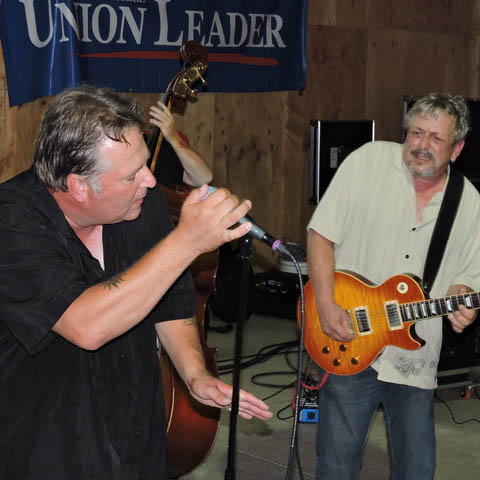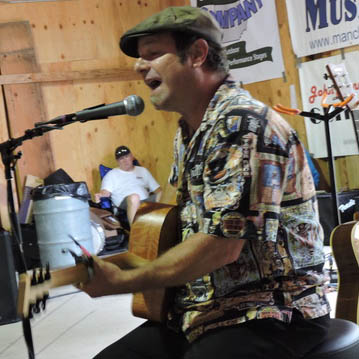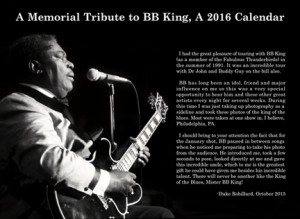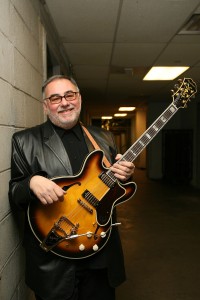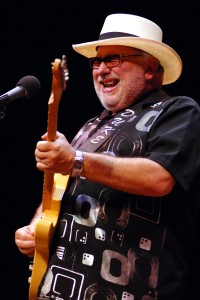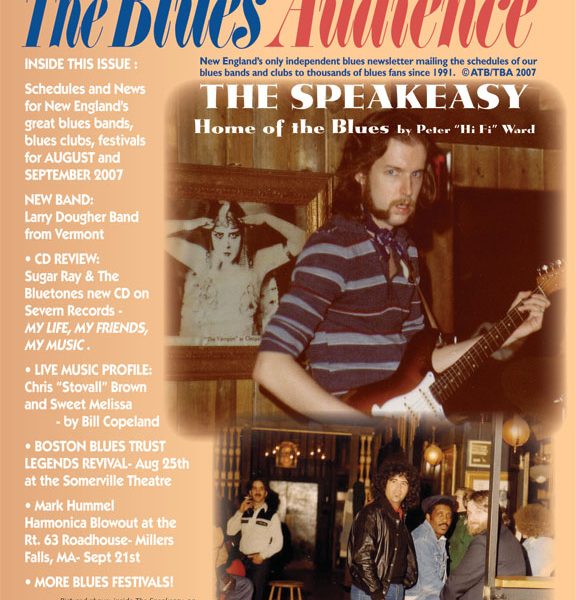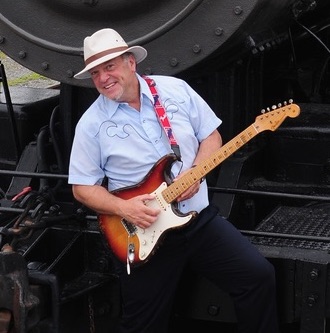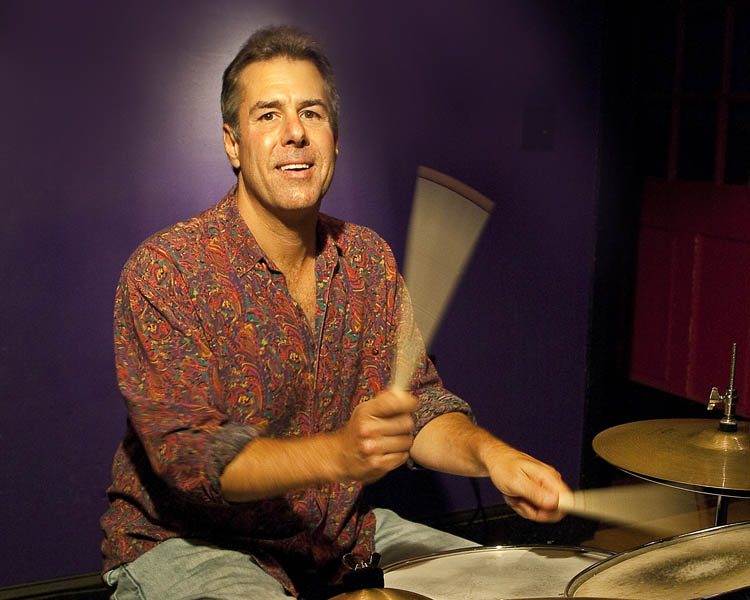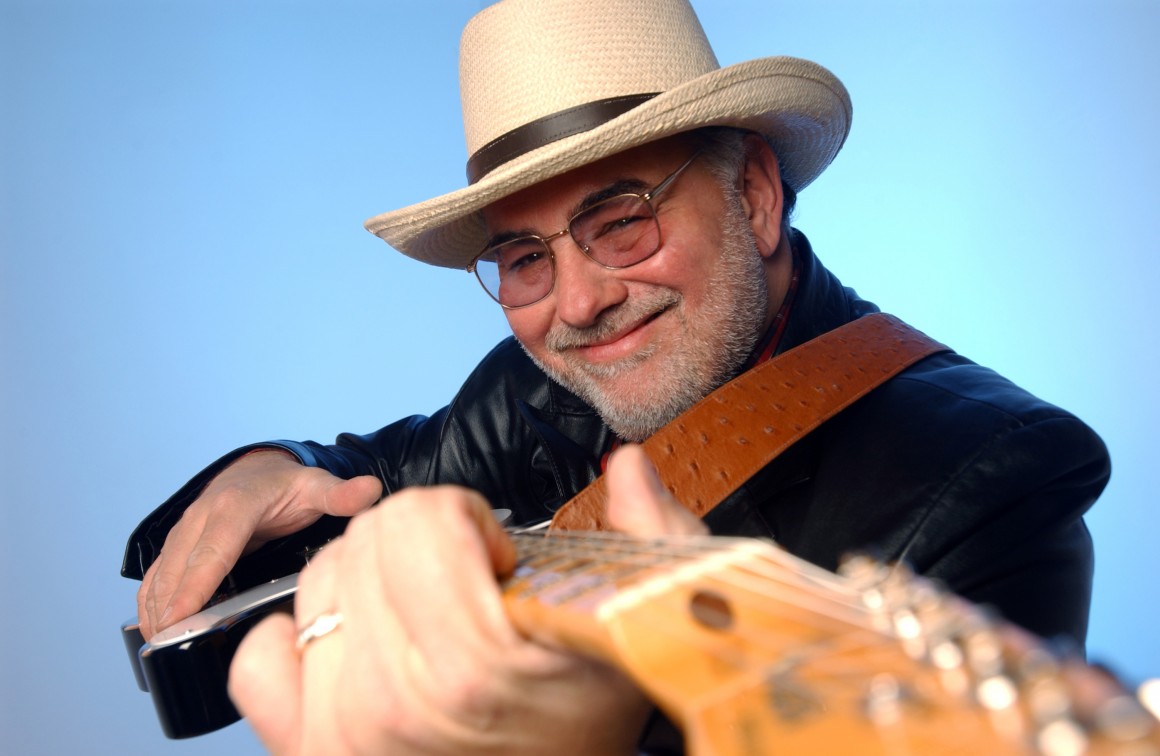
Get In The Mood and Stay in the Groove with the Duke of Blues, Duke Robillard
by Art Simas
When one mentions the “greats” in music, Rhode Island’s own Duke Robillard, 67, has to be included in the conversation. His enduring hard work as a musician, songwriter, producer, mentor, teacher – and his leadership on and off the stage is without question. His talents are akin to a 21st century Quincy Jones. While Jones may have more movie credits, Robillard has more collaborative projects – and the list keeps growing.
Duke has produced, composed music, played instruments, contributed original graphic artwork and photography, collaborating with more than 293 artists (and counting) – alphabetically from Johnny Adams to Kenny “Blues Boss” Wayne, according to the online All Music Guide.
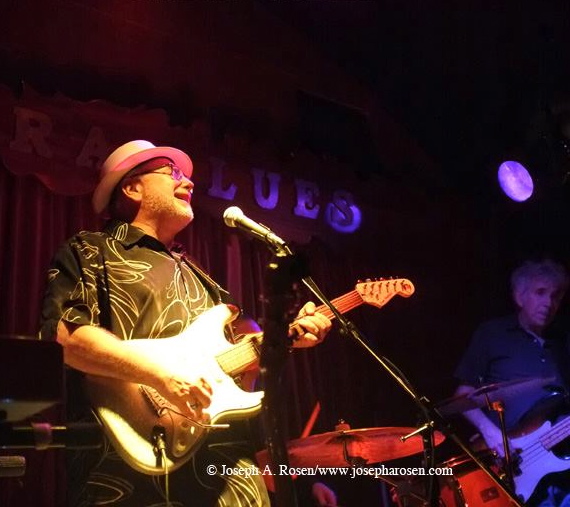
And this depth within the industry includes Kim Wilson, Jimmie Vaughan, Bob Dylan, Ruth Brown, Van Morrison, Jay McShann, Randy Bachman, Jimmy Thackery, Providence native Scott Hamilton, Savoy Brown, Bryan Lee, Van Morrison, John Hammond, Jimmy Witherspoon, Al Basile, Al Copley, John Lee Hooker, Snooky Pryor, Eddy Clearwater, Lowell Fulson, Billy Boy Arnold, Pinetop Perkins, Marcia Ball, Debbie Davies, Miki Hunneycutt, The Blind Boys of Alabama, Curtis Salgado, Sunny Crownover, Joe Louis Walker, Joe Beard, Snooky Pryor and Mark Hummel.
Closer to home, blues and jazz projects include Ronnie Earl, Jerry Portnoy, Gerry Beaudoin and J Geils of the New Guitar Summit, Sax Gordon Beadle, Toni Lynn Washington, Sugar Ray and the Bluetones, Greg Piccolo, Doug James, David Maxwell, and of course, his own albums, and Roomful of Blues, which dates to 1967.
Like the New England Patriots, Robillard dominated the early 2000s at the Blues Music Awards, in Memphis, TN. He won the title of “Best Blues Guitarist” in 2000, 2001, 2003, and 2004, the second most honored guitarist for this award. BB King is first. In 2014, he also won “Traditional Male Blues Artist of the Year.” Overall in the 37 years of the Blues Music Awards, he has been nominated 22 times in various categories. He is also in the running at this year’s awards ceremony on May 5 in Memphis for Best Acoustic Album with The Acoustic Blues and Roots of Duke Robillard. In 2007, Duke received a Grammy nomination for the album “Guitar Groove-a-rama,” produced in his Mood Room studio in his basement. He was also honored with the prestigious Rhode Island Pell Award for “excellence in the arts.” The Pell Award is named for former Rhode Island Senator Claiborne Pell who help establish the National Endowment for the Arts and Humanities in 1965. He received a second Grammy nomination for Stomp! The Blues Tonight in 2014, also from the Mood Room.
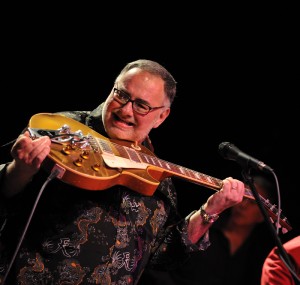
What is the key to being a great producer?
“It can be many different things,” Duke said. “I look at it as having the ability to do whatever needs to be done to get a great record out. Sometimes people need a lot help with material or the way to approach or arrange the material. And then there are others who are totally prepared and only need someone to make sure the right take is picked and the right sounds are there. When I mix it, I’ve got everything together.”
Duke said people usually seek him out if they have a concept for a record. “But every once in a while, I’ll advertise on Facebook and I’ll let people know I have some free time to do something. And there are people who have taken me up on that.” Besides his Mood Room, Duke said he does a lot of work at Lakewest Studio in West Greenwich, RI. “I’ve started doing other stuff like tracking the rhythm section if it’s going to be a record where I’ll add horns later. I might do the basic tracks at Lakewest and then transfer it to my machine and do the horns here at home. I also like to do my vocals here. I’m more comfortable there because now, since I’m a little older, it’s more difficult to sing than it was when I was younger. So I figure if I do it alone, I’ll be less uptight. “
“So it can go three different ways: recording a whole album at Lakewest; at my place; or a combination. I haven’t really traveled around and done overdubs here and there. But many people do. It’s probably something I should try,” he said. “Maybe I’ll look at a Boston studio to handle the original tracks and anything else I need.”
For the past 8 months, Duke has been recovering from a torn rotator cuff and doing physical therapy to get back into playing shape. “Not playing for that long has been driving me crazy. But I’ve gotten into other things – photography and art – have kept me occupied and happy… things that have always been important to me. I used to collect old camera equipment from the 1920s through the 1960s, mostly German, Russian and early Japanese cameras. And when I travelled I’d take those vintage cameras and shoot fellow musicians (Billy Boy Arnold, B.B. King, Little Milton, Pinetop Perkins, and many others) from the 1990s to about 2005.” During his recuperative period, Duke took some of the pictures from two of B.B. King’s performances during this time frame and made a 2016 calendar which he gave to friends and family for Christmas.
“It really came out beautiful and I’m really happy about it. B.B. was such an inspiration besides being an incredible artist and he was such a warm person.” Duke recalled he met King in the 1970s on a gig where Roomful opened for him. “He came up to me after the set and he said, ‘You know, you remind me of my favorite guitar player, Bill Jennings.’ “ Jennings played with the great band leader Louis Jordan in the 1940s. “That was quite an honor and surprise,” Duke said. “So after that we became good friends.”
When he couldn’t play guitar during those months of rehab, Duke was still producing music. “I have 2 blues albums coming out and just a few days ago, I did the mix on the last tune… and that’s for an album that I did 10 years ago. But it’s important because it’s got a lot of classic stuff in there. It’s like the second coming of Duke’s Blues because it has that same feel.” He also re-cut some old songs from Roomful, such as “Don’t You Want to Roll with Me.” And there is a lot of other interesting material, such as “Just Kiss Me,” which he did with the Pleasure Kings as trio, but wrote and played on with Roomful. Since it never got recorded with Roomful, he recorded it with five or six horns so that it would sound like Roomful. “I have another blues album with all new songs that I’ve written and recorded, and I’m ready to finish an album that features songs from the 1920s and 1930s – just old jazz and blues from that time period. It’s called Duke and His Girlfriends, where I have a lot of female vocalists including Maria Muldaur, Kelley Hunt of Kansas City, Madeleine Peyroux, Sunny Crownover from Massachusetts, and actress-singer Elizabeth McGovern (Lady Grantham) of Downton Abbey fame are on it. McGovern is mainly an actress but she put a band together and she sings an old Billie Holiday tune. Duke said. “It’s a really cool album, and I’ve got three or four tunes on it featuring three or four great horn players. So I haven’t been sitting around twiddling my thumbs these past few months,” he continued. “Even though I haven’t been able to play guitar, I’ve been working on all these records, and on my vocals. It’s actually been more busy than normal. If I just sat around, I’d be in a looney bin by now. I like to be creative.
Duke said the actual rotator cuff seems to be useless because the muscle was torn away years ago. “I didn’t know it, and over time the muscle atrophied and shrunk. But other muscles will compensate and take over if I exercise and practice. Now, I have to play guitar with my arm sticking out, which is hard, but I’ve been able to do it for the last two or three months and it’s getting better all the time. He has no trouble moving his fingers, it’s just moving the arm by his side to its new “normal” position since it won’t go where it used to go. “I can play up high (on the neck) easy enough but then to get my arm to go down to a lower frets, I have to stick my elbow out and it feels very odd. But people say that I sound like I always did. And that gave me a big boost since we did the European tour in the fall. My fellow guitarists in Europe who came out to see us said that I have the same phrasing and timing and my sense of melody is fine. They said, ‘It may feel weird to you, but it’s all working.“
Duke said it will be more than a year until it will get as good as it’s going to get. “I can certainly play blues without any problems, but for the moment, I have more trouble playing jazz. “I’m pretty happy that I’m back in the game – recording, producing, and soon, playing gigs again.” In both January and February Duke will have an album to produce each month – one for friend Al Basile, a trumpet player, songwriter and singer. Mike Welch will be on it, too. “I’ll also be producing an album for British guitarist Todd Sharpville, a good singer, songwriter and a helluva a blues guitar, too. So I’ll be busy … which is good,” Duke added.
While many blues giants have shared the stage with Robillard. Robert Lockwood Jr. and Freddy King had some close encounters with him during a sound check at a Blues Music Awards ceremony, the often gruff Lockwood came up to him, looking serious and said, “You stole my riffs and you stole my playing style.” “I said, ‘Robert, you’re the best and out of admiration for you, I copied you. That’s why I have taken some of your stuff … in tribute to you.’ “ But he still insisted, ‘You still stole my stuff.’ “Not knowing what to say next, I said, ‘Of course, I stole from you … because you’re the best.’ “ Duke recalled that around 1975-76 there was a New England Blues Festival at the Providence Civic Center in Providence, and everyone was there … Muddy, B.B. King, Koko Taylor, Freddy King, Willie Dixon, Lafayette Leake, Otis Rush and others. “At that time I was in Roomful, and Muddy was the last act and he really liked me; so halfway through the set he called me up to play with him and then he got the Roomful horns on stage. “So I’m up there playing and he’s giving me solos and Freddie King gets really pissed because Muddy called me up instead of him. So Freddie grabs Luther ‘Guitar Jr.’ Johnson’s guitar out of his hands, puts it behind his head, starts playing really hard, and walks up to me about an inch away from my face. He’s gritting his teeth and starts to growl. It scared the shit out of me. I thought he was going to chew me up and spit me out right there on stage.”
How has the music industry changed?
“It would be easier to answer, what hasn’t changed. Nothing is like it was,” Duke said.“I started slowing down my tour schedule 8-9 years ago because there wasn’t enough work to get across the country. You could only get weekend gigs. Clubs were closing and not booking during the week. Or if they did, it wasn’t enough to pay your hotel costs. So it just became impossible to do. I was nonstop going cross-country for God-knows how many years (since the 1980s to the early 2000s) about 250 dates a year. One year with the Fabulous Thunderbirds I did at least 300, maybe more.
“Now that I’ve slowed down, I like being home but I do want to get out there and start gigging again. I’ve since been released from physical therapy, and they tell me that I’m ready to play as much as you want to. And I’m ready,” Duke said. My agent, Blue Mountain Music of Charlotte, North Carolina, will soon release a statement saying that I’m ready to play again.But getting back to today’s struggle in the music business. Duke said serious musicians today have to be their own self-promotion machine. “Even when I post something on social media I’m telling about what I’m working on, what I’m producing. To be honest, I don’t like doing this stuff, but if I don’t, I’ll just be lost. Even clubs want you to do your own promotion for your gig. They don’t want spend any money doing it, anymore. “Music, in general, is not what it was. I miss the old days when musicians were not business people. When musicians were just musicians we had a lot of fun. I never really looked at what I did as a career. When I looked at it that way, it kind of scared me. I just wanted to be a guy who did what he loved.”
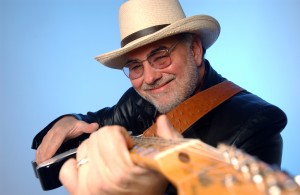
www.dukerobillard.com
Robillard on facebook
